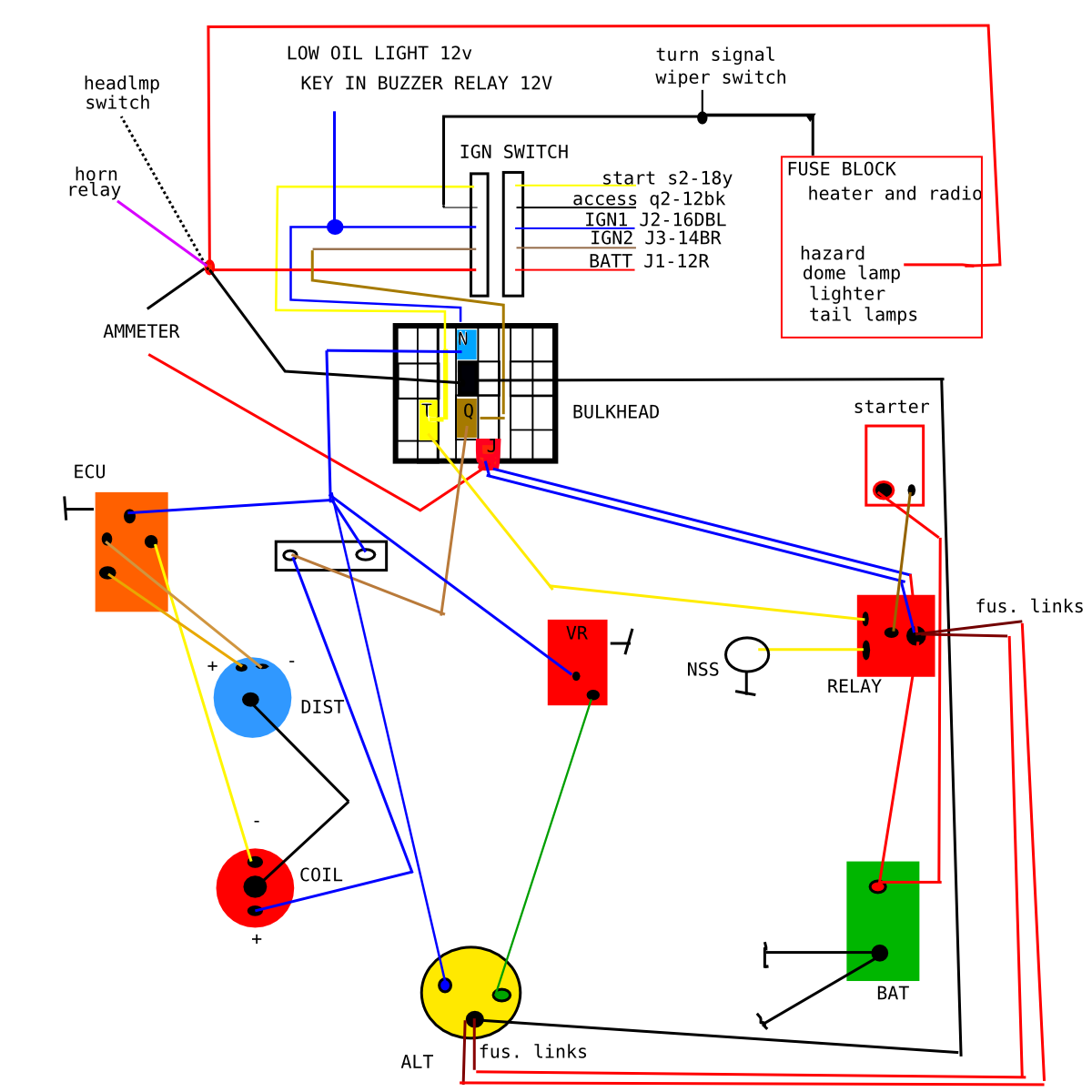70 Duster, slant six, EI.
So I've come across some issues with my under dash wiring. I should start by saying that I have an immediate need to get the car running, which is driving some of my decisions. I'm all for doing things right, but right now, I need to do the things that will lead to a running car that is safe.
I've got voltage drops on just about every part of the ignition system under the hood, except the wiring coming from the battery or the starter relay feeding the bulkhead. Based on my research, what this means is that the return from under the dash is where things are going wrong.
I don't have time to tear the dash apart and fix things at the moment. I'm limited in tools and work area, and the car is probably riddled with black widows since it was sitting in Oklahoma for about 3 years.
It has run, and ran well, for at least 10-15 minutes at a time. At some point I got a melted alternator battery output terminal.
The PO bypassed the ballast resistor, but has a can style red coil installed. If I had known this could cause damage I would have fixed it first thing, but it is what it is.
When testing under the dash, everything I can get to in the ignition switch wiring and the main feed coming from the ammeter are all dropped by about 2 volts. I suspect the ammeter connections of the dash side of the bulkhead connections.
I've replaced the starter relay, so I have the old one which still works, and I've made 2 10ga wires with 14ga fusible links on both ends to put across the alternator battery and starter relay bolt, but this won't do anything to solve the ignition voltage.
The car turns over but doesn't start, and spark at the coil will jump a half inch gap but it's very orange and not at all blue.
To resolve the ignition voltage supply issues, my immediate thought is to use the old starter relay to create a new ignition voltage feed. I'm thinking that if I wire the BAT post to the BAT post on the new actual starter relay, then wire the G post to chassis ground, and the SOL terminal to the N location in the bulkhead (this is the connection where ignition voltage normally comes back out from the bulkhead), and the original ignition voltage that originally came out of the bulkhead to the I terminal on the relay, I'll have a 'new' ignition supply triggered by voltage coming from the now weak ignition switch. Of course this relys on the ignition voltage from the ignition switch actually being present, so given its unreliability maybe it would be better to just use a manual switch to turn on ignition voltage rather than this relay.
I have a pertronix 3ohm coil that I'm replacing the current can with, so that will allow me to run safely without a ballast resistor.
Mostly I'm just looking for someone to tell me a better idea, or that I'm an idiot. I'm throwing this out there, so any thoughts are welcome.
Here's a diagram I worked up, which does not represent my final plan, and has a ballast resistor in the diagram, but drawing it up helped me track down some of the wiring, in case anyone finds it useful.
This started originally as a thread at http://www.slantsix.org/forum/viewtopic.php?t=53793 but this was starting to go way off topic and become very electrical, so I'm continuing it here.
